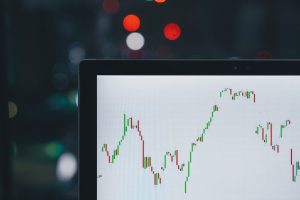The forex market is the largest financial market in the world, with trillions of dollars in daily trading volume. As a result, it is often referred to as a liquid market. But what does liquid mean in forex?
In forex trading, liquidity refers to the ability to buy or sell a currency pair without causing a significant change in its price. A liquid market is characterized by a large number of buyers and sellers, high trading volumes, and tight bid/ask spreads.
The opposite of a liquid market is an illiquid market, where there are few buyers and sellers, low trading volumes, and wide bid/ask spreads. In an illiquid market, it can be difficult to execute trades quickly and at a fair price.
Liquidity is essential for forex traders, as it allows them to enter and exit positions easily and at a fair price. In a liquid market, traders can buy or sell large volumes of currency without affecting the market price, which means they can take advantage of small price movements and make profits.
In contrast, in an illiquid market, traders may not be able to find a counterparty to their trade, or they may have to accept a less favorable price to execute the trade.
Several factors contribute to the liquidity of the forex market. One of the most important is the participation of large financial institutions, such as banks, hedge funds, and central banks.
These institutions trade forex to manage their currency exposures, to speculate on currency movements, or to provide liquidity to the market. Their participation ensures that there are always buyers and sellers in the market, which increases liquidity.
Another important factor is the use of electronic trading platforms, which allow traders to access the market quickly and easily. Most forex trading is now conducted electronically, which means that traders can execute trades in real-time and benefit from tight bid/ask spreads.
The time of day also affects the liquidity of the forex market. The market is open 24 hours a day, five days a week, and trading volumes vary depending on the time zone. The most liquid times are during the overlap of the European and US trading sessions, which is when the majority of trading activity takes place.
In addition to the benefits of liquidity, there are also some risks associated with trading in a liquid market. One of the main risks is slippage, which occurs when the price of a currency pair changes between the time a trader places an order and the time it is executed.
Slippage can occur in a fast-moving market or when there is a sudden news announcement that affects the market. In these situations, traders may not be able to execute their trades at the desired price, which can lead to unexpected losses.
Overall, liquidity is a critical concept in forex trading. A liquid market provides traders with the ability to enter and exit positions easily and at a fair price, which is essential for making profits. However, traders must also be aware of the risks associated with trading in a liquid market, such as slippage. By understanding these risks and taking appropriate measures to manage them, traders can take advantage of the benefits of liquidity in the forex market.






